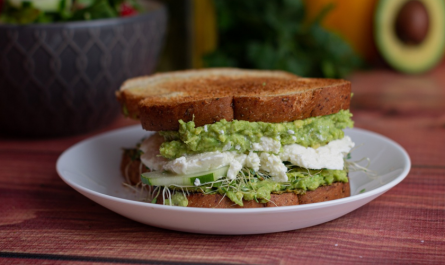Chronic inflammation can cause heart disease and joint discomfort. Anti-inflammatory foods are one of the finest methods to naturally manage inflammation and protect your health. Your 2024 diet should include these top anti-inflammatory foods.
1. Berries
Blueberries, raspberries, and strawberries contain antioxidants called anthocyanins, which reduce inflammation. These antioxidants minimize heart disease risk and boost cognitive function.
- Why Add Them: Rich in fiber, vitamins, and antioxidants
- How to Enjoy: Add them to smoothies, yogurt, or salads for a delicious boost.
2. Fatty Fish
Salmon, sardines, and mackerel are high in anti-inflammatory omega-3 fatty acids. Omega-3s lessen inflammation and the risk of chronic diseases, including heart disease and arthritis.
- Why Add It: Contains high levels of DHA and EPA, which combat inflammation
- How to Enjoy: Grill, bake, or add to salads for a protein-packed meal.
3. Green Leafy Vegetables
Vitamin K, which reduces inflammation, is abundant in spinach, kale, and Swiss chard. Antioxidants and polyphenols in these greens provide many health benefits.
- Why Add Them: Nutrient-dense and full of anti-inflammatory compounds
- How to Enjoy: Use in salads, smoothies, or stir-fries for a nutritious kick.
4. Turmeric
Curcumin makes turmeric anti-inflammatory. Its anti-inflammatory effects have been extensively explored and proved to help with joint pain and inflammation.
- Why Add It: Contains curcumin, a potent anti-inflammatory compound
- How to Enjoy: Add to soups, rice dishes, or make a turmeric tea.
5. Ginger
Ginger contains bioactive compounds like gingerol, which has anti-inflammatory properties. It’s often used to help reduce symptoms of arthritis and can aid in digestion as well.
- Why Add It: Natural anti-inflammatory and helps with digestion
- How to Enjoy: Grate fresh ginger into smoothies, tea, or stir-fries.
6. Olive Oil
Extra virgin olive oil is one of the healthiest fats you can consume. It’s packed with antioxidants, particularly oleocanthal, which acts similarly to ibuprofen in reducing inflammation.
- Why Add It: Rich in healthy fats and anti-inflammatory compounds
- How to Enjoy: Drizzle over salads, roasted vegetables, or use for cooking.
7. Tomatoes
Tomatoes are high in vitamin C and lycopene, an antioxidant known for its anti-inflammatory properties. Cooking tomatoes enhances their lycopene content, making them even more beneficial.
- Why Add It: Rich in lycopene, which reduces inflammation
- How to Enjoy: Enjoy raw in salads or cooked in sauces and soups.
8. Nuts and Seeds
Almonds, walnuts, chia seeds, and flaxseeds are rich in fiber, omega-3 fats, and antioxidants. They help reduce inflammation and can be easily added to a variety of meals.
- Why Add Them: High in fiber, antioxidants, and healthy fats
- How to Enjoy: Sprinkle on salads, oatmeal, or blend into smoothies.
9. Green Tea
Green tea contains antioxidants, especially catechins, which reduce inflammation. Regular green tea consumption reduces heart disease and cancer risk.
- Why Add It: High in anti-inflammatory catechins
- How to Enjoy: Drink daily as a tea or add matcha powder to smoothies.
10. Garlic
Garlic contains sulfur compounds, such as allicin, that have anti-inflammatory effects. It’s also known to boost immune function and reduce the risk of chronic diseases.
- Why Add It: Natural anti-inflammatory and immune booster
- How to Enjoy: Add fresh garlic to savory dishes for added flavor and health benefits.
Conclusion
Reduce chronic inflammation and enhance health by eating these anti-inflammatory foods. From adding berries to your breakfast to cooking with turmeric, modest changes can improve your health. Add these items today to keep your health and minimize inflammation naturally.







